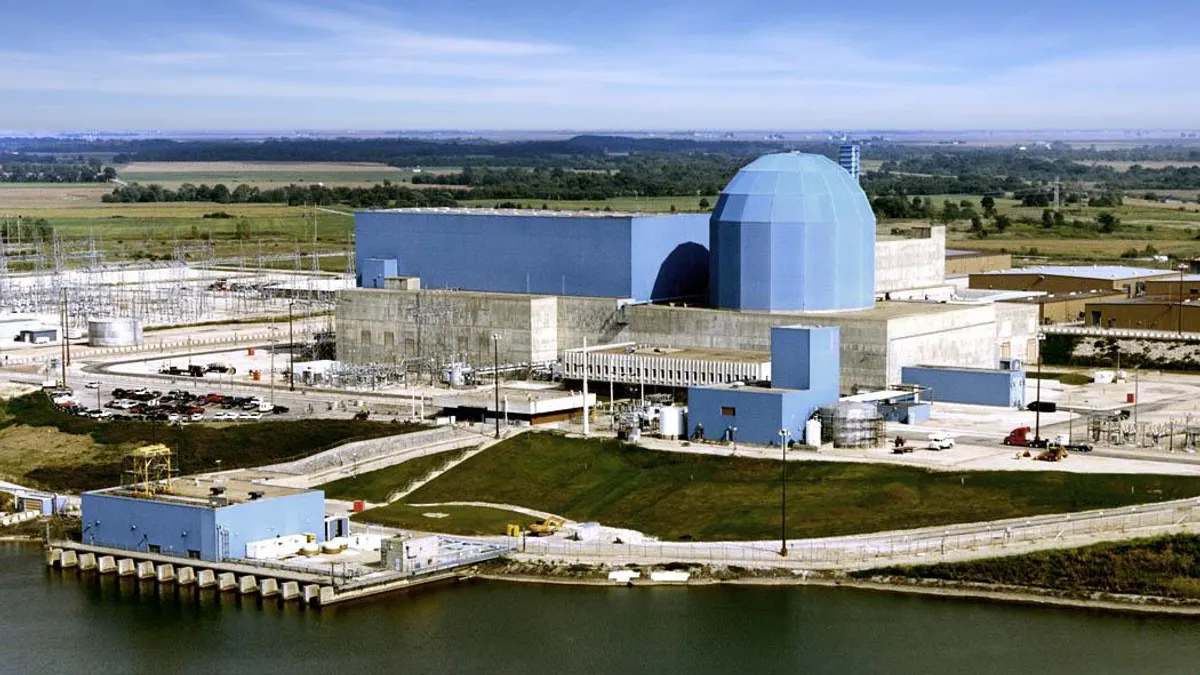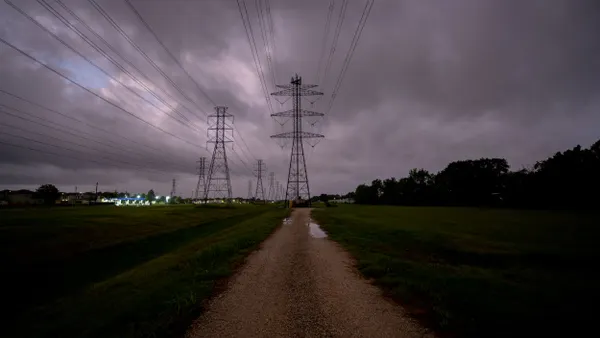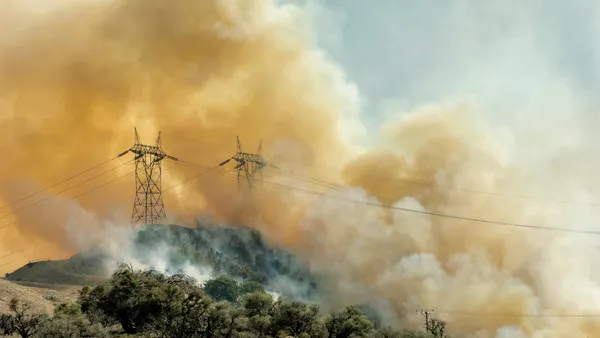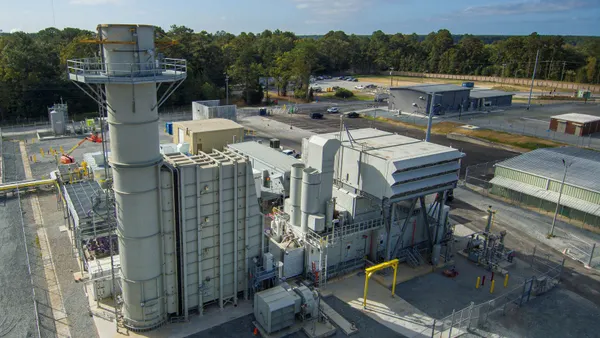Dive Brief:
- Meta’s 20-year nuclear power purchase agreement with Constellation Energy could mark the start of a trend as profitable technology companies seek clean, firm electricity to power their AI ambitions, experts say. On Wednesday, Amazon Web Services and Talen Energy followed Meta’s June 3 announcement with news of a similar deal of their own.
- Investment bank Jefferies estimated the Meta-Constellation deal’s value around $70/MWh, or a roughly $20/MWh premium to Illinois’ energy-plus-capacity market compensation from 2028 and as much as $15/MWh higher than regional wind power purchase agreements. Constellation did not disclose the price.
- Nuclear plants in Illinois and other states with “pay to stay” subsidies are ripe for similar deals in the near future, energy consultancy ClearView Energy partners said Monday. Constellation’s 1,870-MW Quad Cities Clean Energy Center is one to watch as its reactors come up for relicensing in 2029 and 2031, ClearView said.
Dive Insight:
Meta will purchase the clean energy attributes of Constellation’s 1,092-MW Clinton Clean Energy Center in central Illinois beginning in June 2027, as its home state’s 10-year, ratepayer-funded Zero Emissions Credit program winds down. The ZEC program saved Clinton from premature closure in 2017 “after years of financial losses,” Constellation said on June 3.
The virtual power purchase agreement will support a 30-MW power uprate and a 20-year operating license extension, which will allow the plant to operate until at least 2047. Meta’s power purchases will support its “clean energy goals and operations in the region,” rather than power data centers directly, Constellation said.
Constellation called the deal “a market-based solution” that will replace the ZEC subsidy and ensure long-term plant operation without ratepayer support.
“[Meta] figured out that supporting the relicensing and expansion of existing plants is just as impactful as finding new sources of energy,” Constellation CEO Joe Dominguez said in a statement last week.
Electric market experts quibbled with the notion that Clinton owes its continued operation to Meta, given strong demand for electrons of any variety and for clean, firm power in particular.
“‘Saved’ might have been a strong word,” said Charles Hua, founder and executive director of utility advocacy nonprofit PowerLines.
“My feeling, given [that Clinton] is a merchant power plant, is that a deal would have been struck with someone, somewhere,” added Tremaine Phillips, president of Third Coast Strategies and former member of the Michigan Public Service Commission. Phillips and Hua spoke to Utility Dive in a joint interview last week.
The virtual PPA structure and the parties framing it as a save suggest Meta and Constellation want to avoid the popular and regulatory backlash that could follow a colocation agreement, ClearView said.
Federal regulators and state officials have pushed back on agreements like Talen Energy and AWS’ previous proposal to colocate as much as 960 MW of data center capacity at Talen’s 2,228-MW stake in the Susquehanna nuclear power plant. Under that arrangement, Talen would have redirected significant amounts of the plant’s output to AWS operations nearby.
On Wednesday, Talen and AWS instead announced a front-of-the-meter agreement that would see AWS purchase up to 1,920 MW of Susquehanna’s output for at least 16 years to serve present and future data centers in the PJM Interconnection. The deal would take effect next spring and replace the companies’ colocation proposal, they said.
In part because Meta’s VPPA does not involve any redirection of power supply, it will not require state or federal regulatory approvals, Constellation spokesperson Paul Adams said in an email. The Talen-AWS deal would require the local utility, PPL, to upgrade its transmission network but doesn’t require Federal Energy Regulatory Commission approval, Talen said.
Regulators’ limited role in the Meta and possibly AWS deals contrasts with the much more involved process for Constellation’s first announced nuclear VPPA, its 20-year agreement with Microsoft for the entire output of the undamaged, prematurely retired 835-MW reactor at the power plant formerly known as Three Mile Island. Restarting a retired nuclear reactor is a major undertaking that requires extensive engagement with the U.S. Nuclear Regulatory Commission and state and federal utility regulators.
Last year, Morgan Stanley analysts estimated the value of the Microsoft VPPA at $98/MWh. Jefferies said at the time that the value could be as high as $115/MWh. Either way, the Meta VPPA’s value is likely significantly lower, between $70/MWh and the $80/MWh to $88/MWh range Constellation gave last quarter for future front-of-the-meter offtake agreements, Jefferies said.
That discount is likely due not only to the lighter engineering and regulatory workload involved in the 30-MW power uprate, but also because Meta is not physically taking power from Clinton, Jefferies and ClearView said.
Constellation will first modify the plant’s high-pressure steam turbine to increase efficiency and generator capacity, then it will improve reactor power measurement to allow the plant to operate closer to full capacity, Adams said. Constellation aims to finish the generator uprate in 2027 and the measurement uncertainty recapture project in 2029, he said, boosting total plant output to 1,121 MW.
Constellation previously announced a slate of power uprate projects through the end of the decade that could add as much as 1 GW of incremental capacity without building a new reactor, Adams said.
The planned uprates include 158 MW of additional capacity between its Byron and Braidwood plants in Illinois, which ClearView flagged as potential PPA candidates. The roughly 1,110-MW reactor at DTE Energy’s Enrico Fermi plant in Michigan could also attract offtake interest, Phillips said.
DTE Energy is considering a 150-MW power uprate at Fermi; a company executive indicated earlier this year that DTE would be open to state support for a long-deferred second reactor there.
But industry chatter suggests fellow independent power producer Vistra could be the next to announce a bilateral offtake agreement, possibly for output from the 2,425-MW Comanche Peak plant in Texas as soon as this month, Jefferies said.
The NRC recently approved license extensions that will allow Comanche Peak’s twin reactors to operate until 2050 and 2053.














